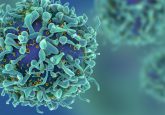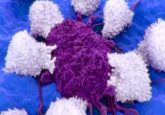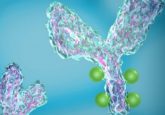ECC2015: CheckMate 067 demonstrates efficacy of immunotherapy combination across melanoma subgroups

New results have confirmed that treating advanced melanoma patients with a combination of the immunotherapies nivolumab and ipilimumab improves progression-free survival when compared with either agent alone, regardless of age, disease stage or BRAF gene mutation. These new data were presented by James Larkin (The Royal Marsden,London UK) at the 2015 European Cancer Congress last weekend (25–29 September, Vienna, Austria).
Larkin commented: “Results from our large analysis of predefined subgroups of patients with advanced melanoma provide evidence that suggests the combination of the two drugs consistently improves progression-free survival across a range of subgroups, including patients with poor prognostic factors, when compared with either nivolumab or ipilimumab alone.”
In the Phase III CheckMate 067 trial, 945 patients with advanced melanoma across 20 countries were randomized to receive a combination of the PD-1 inhibitor nivolumab and the CTLA-4 inhibitor ipilimumab, or either alone.
Individuals who received the combination therapy experienced an average of 11.5 months without disease progression, compared with 6.9 months for patients on nivolumab alone and 2.9 months for those on ipilimumab alone.
In terms of disease subgroups, the progression-free survival in those with disease harboring V600 BRAF mutations who received the combinations was 11.7 months, compared with 11.2 months in those without the mutations. Results in both populations were significantly lower in terms of progression-free survival for either drug alone.
“These results provide evidence that the efficacy of the combination therapy is similar whether or not the tumors harbour BRAF mutations. This has important practical implications for clinicians treating patients with melanoma,” said Larkin.
A similar trend was noted when progression-free survival was analyzed across groups of patients according to the extent of disease spread, and whether the patients were aged less than 65 years, between 65 , 65–75, and 75 and older.
“The subgroups included in these analyses are those of particular interest to melanoma clinicians, such as patients aged 75 and over. We believe that the data will give confidence to patients and their healthcare providers that the combination of nivolumab and ipilimumab will be effective regardless of advanced age, the presence of a BRAF mutation, or poor prognostic factors,” Larkin continued.
Analysis of the data from CheckMate 067 will continue – the next expected milestone will be official reporting on the overall survival data of the combination therapy in these patients.
Source: ESMO press release





